Bodies and Souls
curated by Manuela Lietti
Artists:
Feng Chen
Huang Hai-Hsin,
Pixy Liao,
Wang Haiyang,
Liao Wen
2023. 02.21 - 04.15
Cassina Projects
in collaboration with Capsule Shanghai
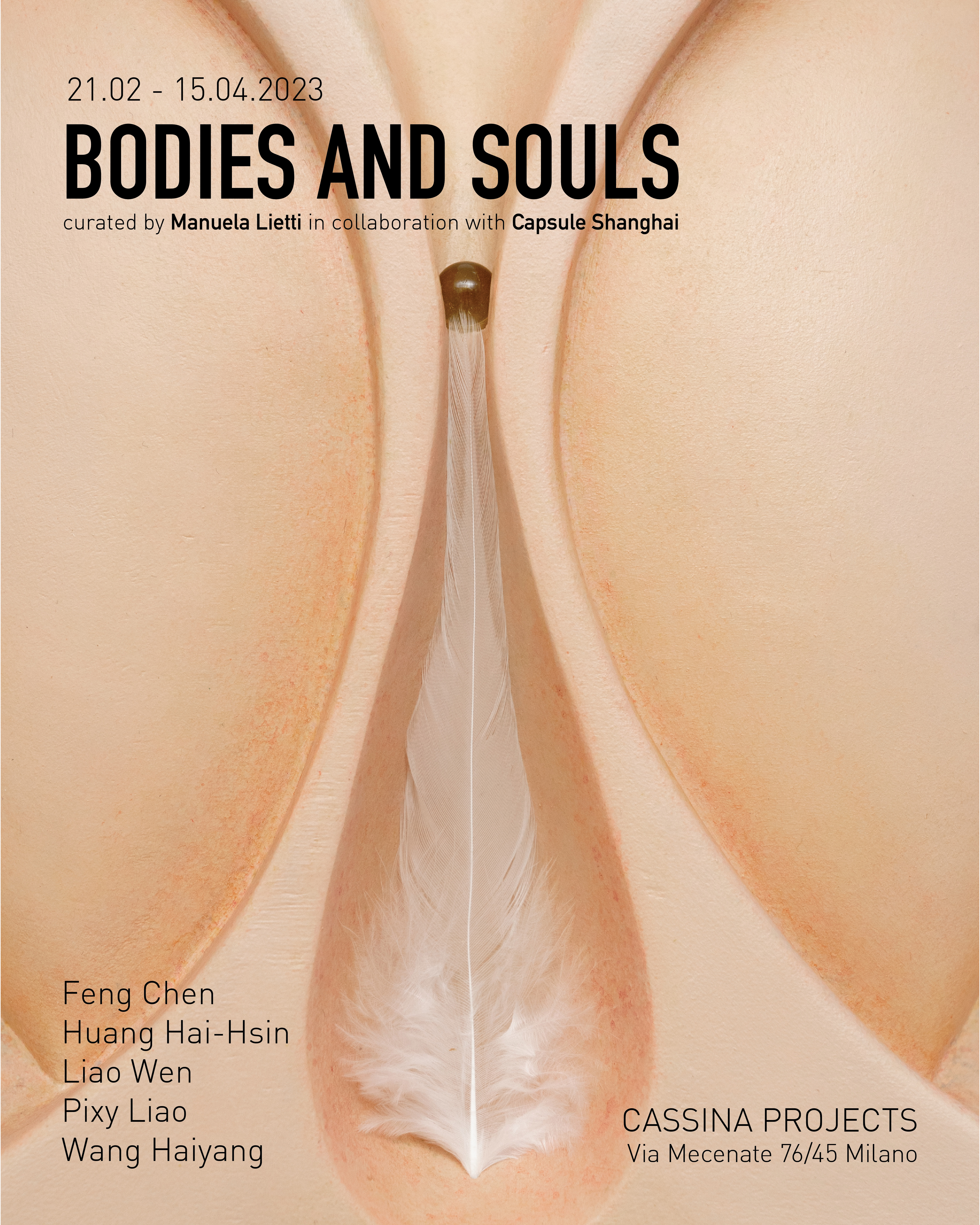
Bodies and Souls presents the work of Liao
Wen, Wang Haiyang, Pixy Liao, Huang Hai- Hsin, and Feng Chen in Milan for the
first time. These five contemporary artists grew up in a similar Asian cultural
context and their work is characterized by the use of the body as signifier and
signified. The group show, spanning the upper floor of the gallery space,
consists of a selection of the artists’ most recent works, as well as pieces
specifically created for this exhibition that blend the language of photography
with painting, video, sculpture, and sound installation. The body, with its
contradictions, impulses, and declinations, has always been the aesthetic and
conceptual core of Western art and thought, from antiquity to the present day.
In classical East Asian art, however, the body is often hidden, elusively
immaterial, or indirectly evoked, as a result of the East Asian preference for
a holistic vision. Underlining the perfect union of man and nature, the
continuity of the individual's body with the larger environment is translated
into the creation of an ideal unicum. However, since its inception,
contemporary art from Greater China has placed an unprecedented emphasis on the
body, making it visible, experiential, and malleable. This trend reached its
peak during the 1990s, with the birth and evolution of the first performance
art in Greater China, for example. In more general terms, since the 2000s, art
about the body has embraced the socio-cultural complexities that the
contemporary East Asian world has experienced within its own borders and in
relation to transactional reality: the birth of a neo-feminist aesthetic and
ethics, the creation of a transversal sexual identity free of definitions, and
the interlacing of genres and techniques that transforms technology into an
extension of the body and vice versa. The work of the five artists on view
offers different facets of a composite panorama and places contemporary artists
from Greater China in an international context.
Liao Wen (b. 1994 in Chengdu; lives and works in Shenzhen) departs from the
physical body, its organs, and its epidermis to portray the invisible through a
language that integrates figuration and abstraction. She aims to showcase the
irrational in a rational way. The body is hereby conceived as a tool to explore
and understand oneself, others, and the outside world. On this occasion, in
addition to the two sculptures Hesitation and Uprise, Liao unveils two new
works, created specifically for the exhibition, and that anticipate her new
Sensation series. The latter, inspired by Roman and Christian ex-votos, is the
translation of bodily sensations such as anger, fear, or the need to sneeze
through a purely sculptural language made up of geometries, volumes, and
materials that pay homage to the body as a pure means of perception.
The bodies that Wang Haiyang (b. 1984 in
Shandong; lives and works in Beijing) portrays are captured in a continuous
metamorphosis that links the plant, animal, and human realms. In the
watercolors of the Human Beast Ghost series, we perceive a sort of tension
CASSINA PROJECTS born of the intersection between Apollonian and Dionysian
spirits, between creation and destruction, but, above all, we witness an
exchange of energy that is sometimes sexual and sometimes cosmic, whose aim is
to bring to light the existence of a liminal zone beyond all sorts of definitions;
these works are the ideal stage for the appearance of a third dimension, a
third sex, a space of possibility and potential beyond the visible and the
known, as highlighted in his brand new painting Forbidden Love. In her
photographs and videos,
Pixy Liao (b. 1979 in Shanghai; lives and
works in Brooklyn, NY) embraces an ironic approach that subverts the common
logic of balance between the sexes and delves into the artist's unconscious.
Bed Wrestling, a series of photos taken in different hotel rooms portrays Pixy
and her partner Moro at the end of or in the midst of a fight that Pixy wins. A
reversal of what is considered standard, especially from a traditional Asian
perspective, the photos stage a game of roles that leads the couple to
experiment with new ways of being, loving, and creating in a constant
hybridization of art and life.
Huang Hai-Hsin (b. 1984 in Taipei; lives
and works in Taipei) creates real tableaux vivants in which the body becomes a
metonym for the individual's personality and values but also for a shared
societal attitude. Presented without the aura of respectability and conformism
that society would require, the protagonists’ bodies in Human Design, her new
painting on display, are distinguished by coarse, deliberately amplified movements
and poses, as if to ironize the contemporary obsession with presentable, fit,
and “acceptable” bodies that are all portrayed in ideal flashes and not during
moments of truth.
Feng Chen (b. 1986 in Wuhan; lives and
works in Hangzhou) reflects on the intrinsic value of the body in space, but
also its ability to create and activate new volumes, simply by passing by or
existing in space. His sound installation alludes to a person and his
physicality by capturing his activities: from a person entering a room to the
movement of the air caused by his movement to objects being moved. Feng
translates the changes caused by the presence of the body itself into sound
vibrations that the viewer is able to hear but also into subtle, almost
imperceptible sound modulations. These modulations may not be distinguishable
at first, but they do capture the essence of a certain physicality revealed
through weighted and apparently undetectable movements.
Manuela Lietti is an independent art critic and curator specializing in contemporary Asian art. Since 2003, she has been active as a curator, critic, and coordinator of gallery and museum exhibitions, as well as public art projects, in China and abroad. As a curator, she has worked with various institutions, including La Biennale di Venezia (Venice), the Israel Museum (Jerusalem), CAFA Art Museum (Beijing), Haus der Kulturen der Welt (Berlin), the 2010 Carrara Sculpture Biennale (Carrara), the Chinese Ministry of Culture (Beijing), Three Shadows Photography Art Centre (Beijing), the 2019 Shenzhen Bi-City Biennale of UrbanismArchitecture (Shenzhen), Galleria Continua (Beijing), Galleria Massimo De Carlo (Hong Kong), and Capsule Shanghai (Shanghai). Her essays, interviews, and reviews have appeared in numerous print and online publications worldwide, such as Arte e Critica, Artribune, Art Asia Pacific, Flash Art, Frieze, Artforum, Artforum.com.cn, and Artron.net, as well as in exhibition catalogues and monographs. She currently lives and works between Beijing and Milan.
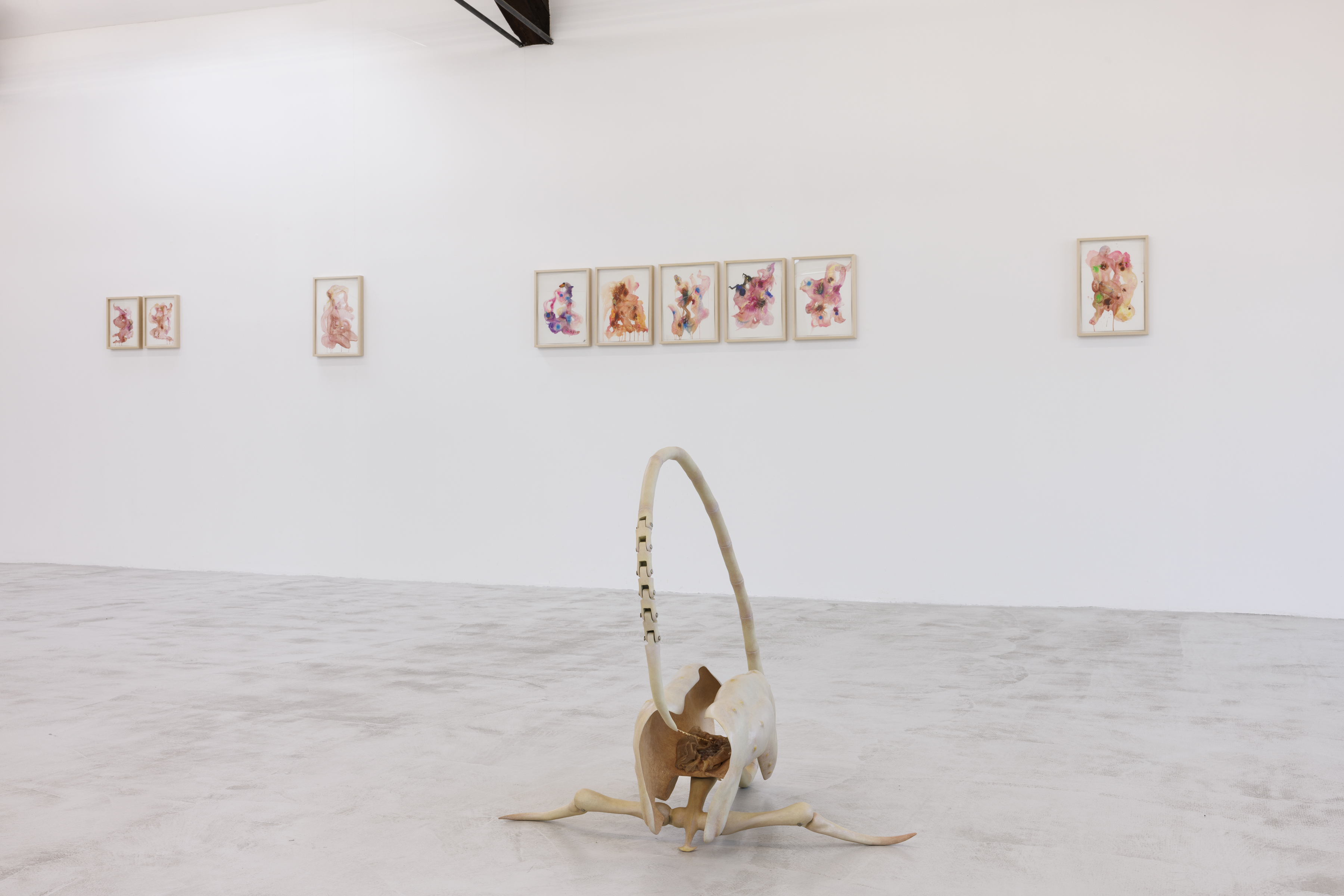
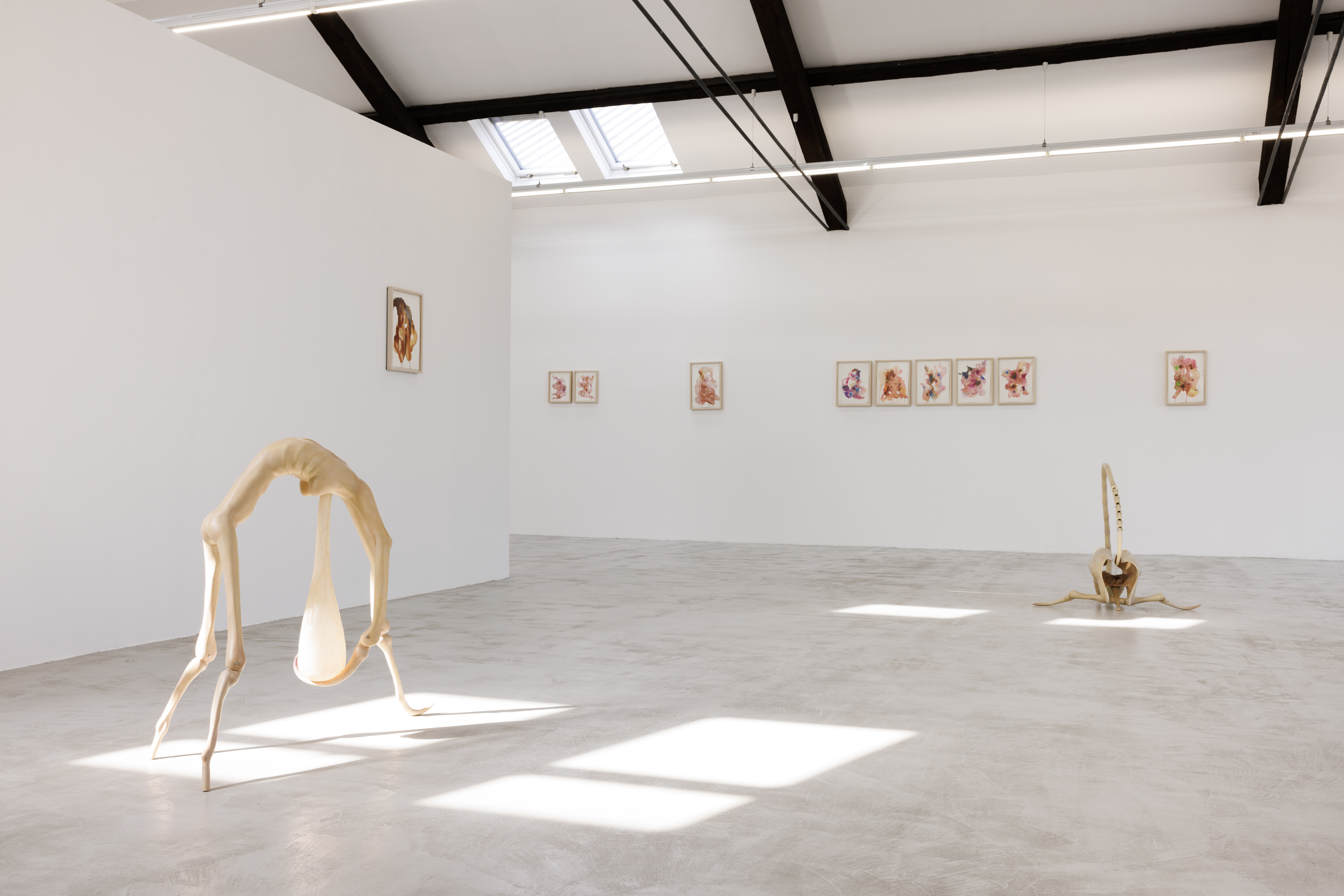
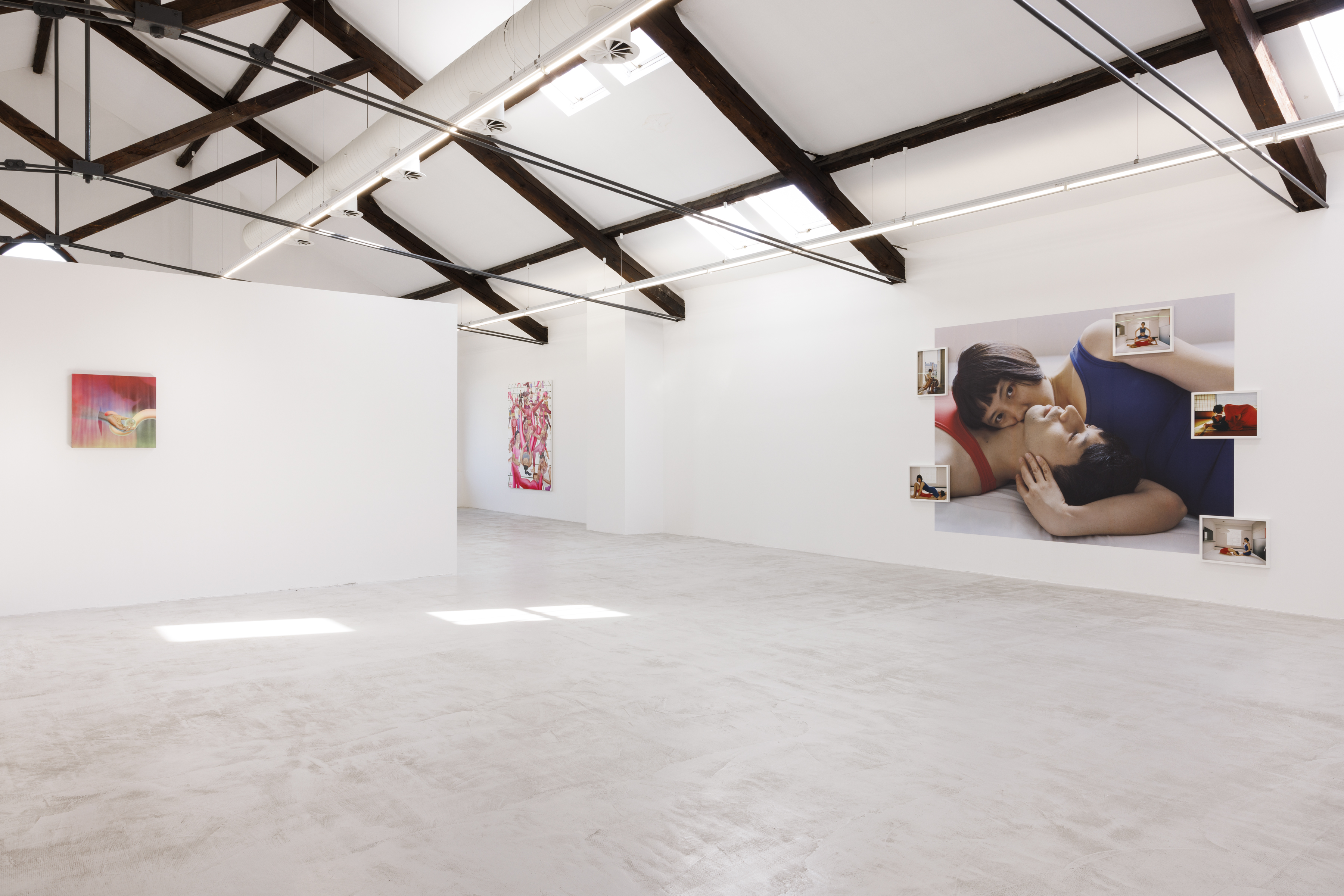
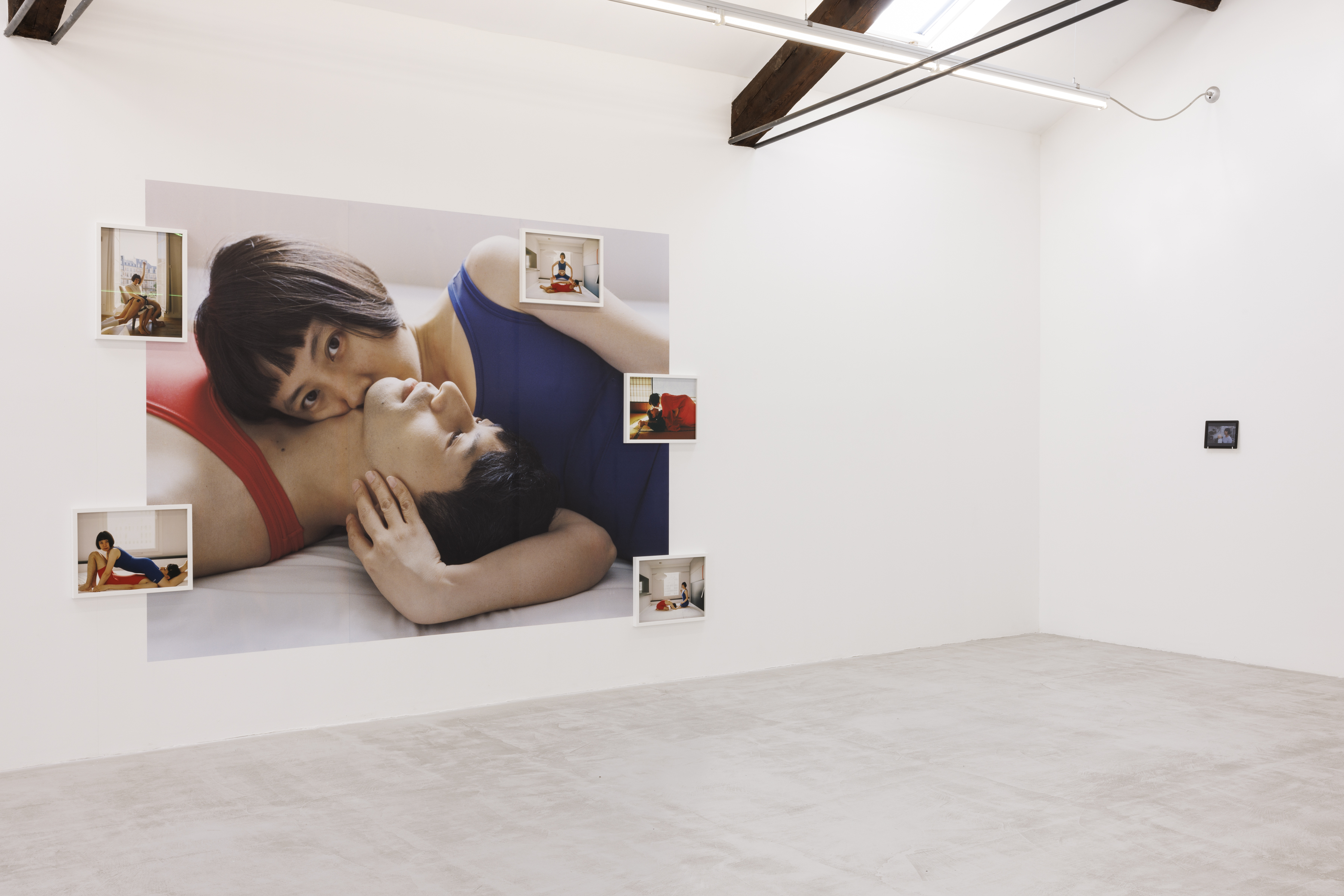
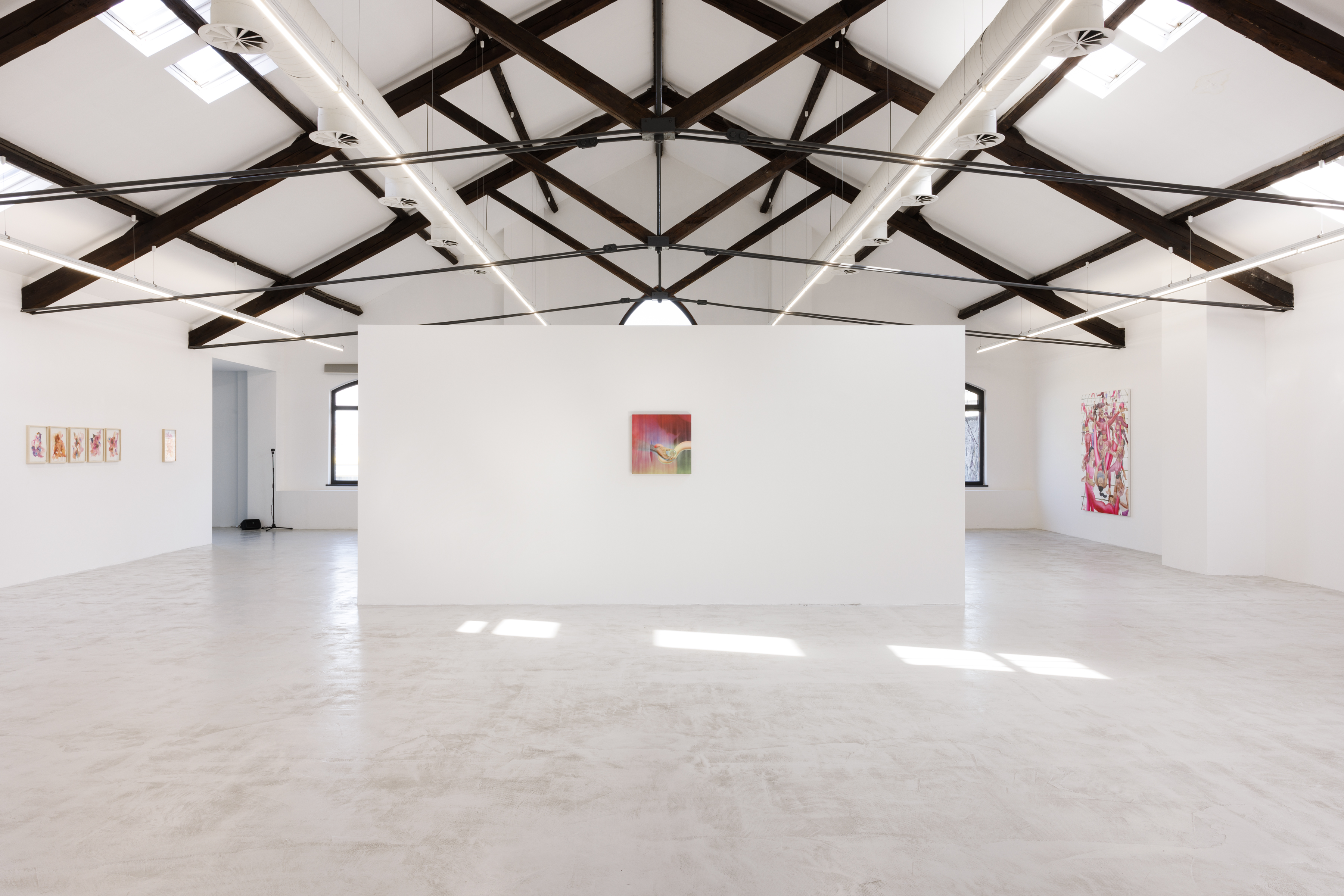
Bodies and Souls, 2023, installation view, Cassina Projects, Milan, photo: Roberto Marossi
Courtesy Cassina Projects
Courtesy Cassina Projects